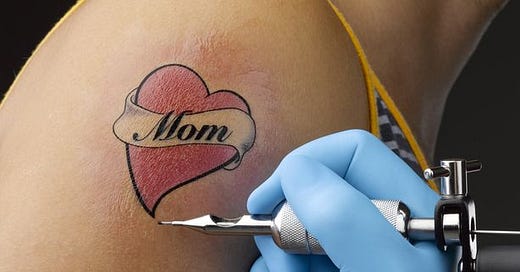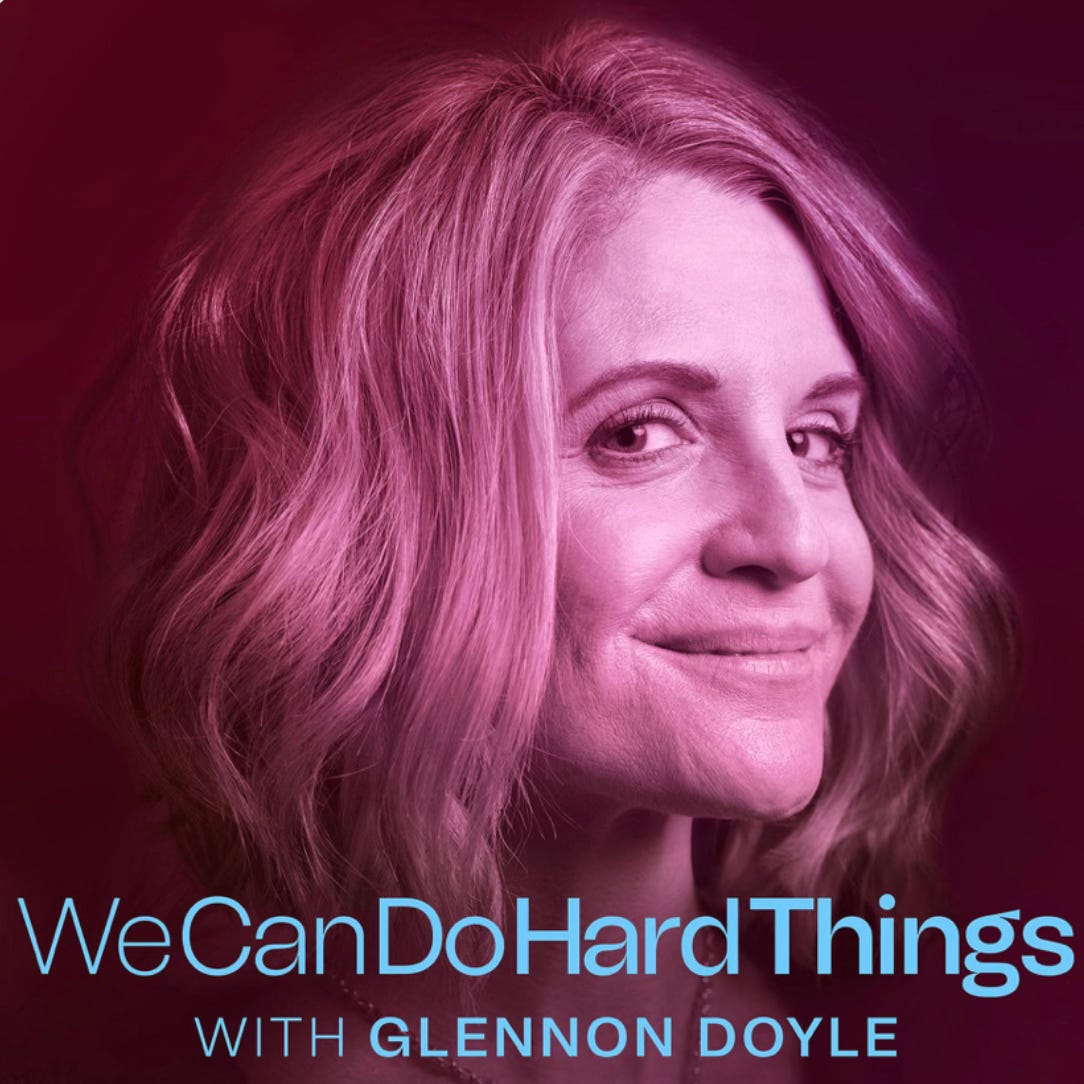Someday I’ll write about my relationship — or lack thereof — with my mother, and the irony of having started the nation’s largest mother-led nonprofit in spite or because of our tenuous bond. How when people ask me about my mother, I either say she’s fine or dead, depending on my mood, but I don’t actually know if she’s either. How a therapist once asked me, “Do you think you subconsciously started an organization made up of millions of mothers to surround yourself with all of the love and adulation you never received from your own?” How I hope it’s actually that, like in the letter below, I worked with what my mother gave me to “gather up mothering love and use it as a floodlight to illuminate and warm the world.”
I’ll explore all of that at some point, but for now I just want to share this beautiful letter my friend Glennon Doyle wrote to her friend, Oprah Winfrey, upon the death of her mother. It was shared on this week’s episode of the podcast “We Can Do Hard Things.” Oprah cried as she read it, and I cried as I listened.
“‘Hello my friend, my sister, my example, I’m sitting on a balcony on Cayman Island and right at this moment writing an essay about the word mother, what that word really means, how it’s less to me a fixed identity we can be or not be and more an energy we can offer or not offer. The essay is about how some of us who can check the box mother never really learn how to offer mothering love and how others of us who don’t check the box, harness it and offer it widely and wildly. The essay is about how much better off the world would be if we gathered up mothering love and used it like a floodlight instead of a pointed laser aimed only at the few we’ve been assigned.
As I’m writing this essay on the balcony, my sister just sent me a text that says, ‘G, Oprah’s mother died. She was 83. I wanted you to know.’ I just got that text a minute ago. I would never presume to guess what your relationship was like, how complex it was and is to be your mother’s daughter, what your feelings are this week, what your feelings have been or will be. I just wanted to say that you are my example of how to gather up mothering love and use it as a floodlight to illuminate and warm the world. You are my and the world’s best example of grace, which means that we can somehow give what we’ve never even received. I don’t know much, but from everything you bravely say and kindly don’t say, I’ve gathered that you didn’t get the mothering love you deserved and needed as a little girl and a grown girl.
To me, that is what makes you a miracle. It is a miracle that somehow you took the broken pieces that she put in your hands, all of them and you spun them into gold and opened your hands wide and offered that gold back to the world. Which is not just a gift to the world, it is a gift directly back to your mother, because you worked with what she gave you, ensured that her legacy through you is gold. With your help, your mother’s legacy is gold. What a gift. If there is a Heaven, she can see that now. She can see that her miraculous daughter somehow, somehow turned her offerings to gold. God, bet she’s amazed and grateful. Well done, good faithful, miraculous, badass, servant. In your corner forever.’
My friends, that is my letter from Glennon that freed me and I thank you.”






As someone with a complicated relationship with my mother and father I love these words from Glennon. So much of the foundation of who you are shakes when you lose a parent, even a bad parent, it takes time to reset the structure.
This ties into your writing about when your kids leave too, in that, I worked so hard to create a family with love, without the abuse and neglect, teaching them to be who they are, it was very hard not to feel the pain of letting them go. While waiting them to grow and start their own lives, it’s been sad to let go of this beautiful family I created. It’s evolved and is still beautiful but now it comes differently.
The book Mother Hunger helped me so much. Just being able to name it is powerful.